GamesBeat: What sort of setting is this, within the world of the game?
Druckmann: It takes place … Riley shows up in Ellie’s life, and you get the sense that there was some sort of falling-out between the girls. Riley is trying to win Ellie over, and she invites her to go with her. They both sneak into an abandoned mall within the confines of the quarantine zone. Then, they go on this adventure within the mall.
GamesBeat: Shopping malls and zombies seem to be a recurring thing.
Druckmann: The mall became intriguing to us in that it’s this sort of museum of who we are. These two girls were both born after the outbreak. For them, [shopping malls] are the relics of an ancient world. When they go in a Halloween store, the concept of Halloween is so alien to them. We can really play with that and do these fun games between the two of them, building on that relationship.
GamesBeat: Was it fun to return to a character that already had a story with a beginning and an end?
Straley: I think so, yeah.
Druckmann: We love these characters.
Straley: I love her even more, because of what we explored through the DLC.
Druckmann: It gives you another dimension to who Ellie is.
Straley: For us, we’re the biggest critics of what we’re creating and trying to do. We were very successful in achieving the goal of adding another dimension to this character, and another reason … a just cause, like … for who she is and how capable she has become over the single-player campaign. By playing through these sequences with Riley, you understand more about the lengths that Ellie is willing to go for the people that she loves in her life. That’s a layer of depth that, only by exploring this chapter, were we able to say, “OK, that’s cool. I didn’t know that. I loved Ellie already, but now there’s this extra little tick there.”
GamesBeat: You’re slugging it out in the awards shows here with Grand Theft Auto V, BioShock Infinite. Do you draw any conclusions from any of it yet, as far as what gamers mostly gravitate to?
Druckmann: The question is, do the awards represent gamers, necessarily? I guess it depends on the awards, who votes on them.
GamesBeat: This one represents game designers, I guess.
Druckmann: All this stuff is humbling, but you try not to put too much weight into it. It’s not why we do these things. We’re trying to make games that, first and foremost, we and the team are proud of, and second, that players can connect to and get something out of. That’s super gratifying. But I don’t think the awards will change what we do or our approach in any way.
GamesBeat: Has The Last of Us changed Naughty Dog?
Druckmann: Inasmuch as any game that we make….
Straley: Yeah. Of course we’re going to go through a transformation, just going through the process of trying to explore how to make a new IP and how to create these characters and an experience that we’re proud to put the Naughty Dog label on. And also, building a team around new concepts and the trial by fire. That can’t help but create a transformative experience internally.
But in regards to the games that we make, we’re constantly challenging ourselves. Uncharted 2, there were some challenges moving from Uncharted, and then from Uncharted 2, Neil and I branched out and created The Last of Us. We’re constantly evolving the ideas that we found in the last experience and pushing them. Once you play Left Behind, you’ll see how we’ve taken some ideas and evolved these concepts. You’ll see a new take, just inside of this smaller format.
We would get bored if we weren’t challenging ourselves or if we didn’t have some inkling of fear about what we’re doing as creators. We’d be playing it too safe. As a studio, there’s something to embracing a bit of that chaos and saying, “OK, this is part of the process.” Lean into the fear, as we say.
Druckmann: That’s how you make something new and potentially make something great.
Straley: It’s just reconfirming those lessons that Naughty Dog … if we stick together as a team and try to stick to the gamer gut inside of us that says, “That was the thing that sparked us initially.” Then, in the end, as long as we stay true to that passion, hopefully, we’ll create something compelling.
GamesBeat: I talked to Elan Lee from Microsoft’s Xbox entertainment studio in L.A. He was talking about how he wants to create something in between interactive games and TV, sort of shifting a little bit more toward TV. That’s why they want to do it in L.A., where they have access to a lot of top screenwriters and all that. Do you guys have some strong opinions on that space and which direction you might want to head toward?
Druckmann: The thing that we find is that to tell a successful story in a video game, the process of writing that story has to be integrated into the development of the video game. If it’s so separate … the fear sometimes is like, people think the fix might be to hire a really strong screenwriter. Unless that screenwriter is sitting there with the designers and engineers in-house, you’re going to get a separation between what that story is trying to do and what the game is trying to do.
We found it was a constant push and pull between the story we wanted to tell and the constraints of that story and the gameplay we wanted to create. Those things sometimes have to make pretty harsh sacrifices to meet in the middle and do something where its strengths lie in video games, rather than in one direction or the other.
Straley: The other thing is, we love games. Neil and I and all of Naughty Dog, we know that we’re making an interactive experience. We’re coming from it, initially, with that idea. We also love a good story. So our passion is in creating core mechanics and trying to create a feedback loop from the game language to the player and back again. That’s all part of the experience of trying to get you to feel what the characters are feeling in the story. Our choices, then, in what Neil’s talking about as far as the flex between story and gameplay decisions that we have to make … what do we feel is best serving the experience right now?
Interactivity ultimately allows us to do something that TV and movies don’t as passive media. It allows us to get the player more invested in every single moment that they’re controlling the situation. But people enjoy a story that’s delivered, again, with eloquence and respect for the medium. They enjoy good stories. That’s all we’re trying to do, is parallel those two things. We love making games and what that can afford us.
Druckmann: So there’s no movies coming out of Naughty Dog any time soon.
VentureBeat's mission is to be a digital town square for technical decision-makers to gain knowledge about transformative enterprise technology and transact. Learn More
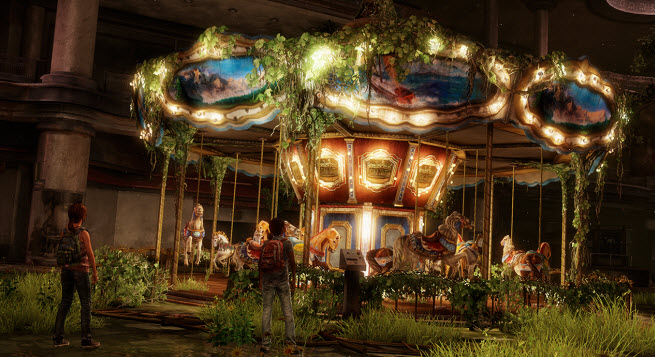
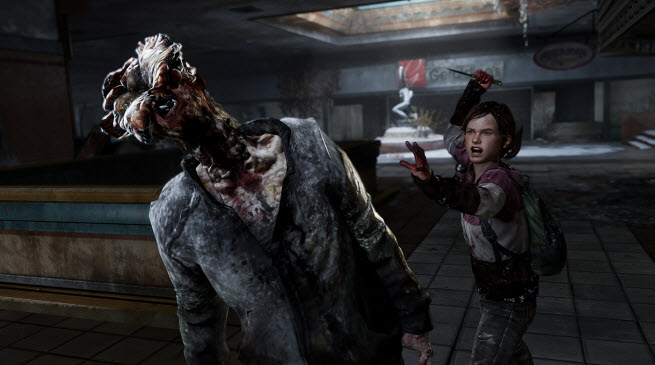
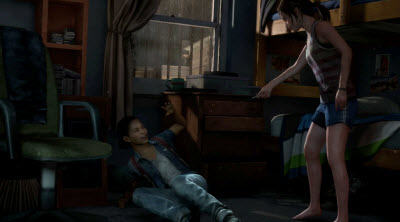
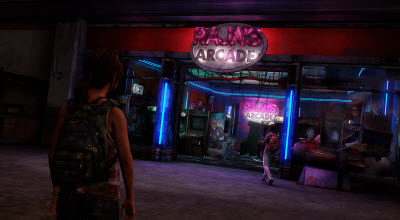
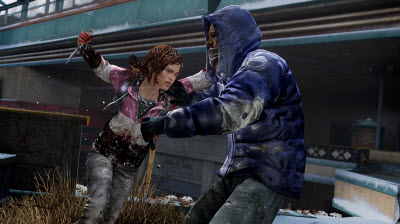


![Reblog this post [with Zemanta]](http://img.zemanta.com/reblog_e.png?x-id=38786905-9c60-4f50-acfd-b344cc295801)
